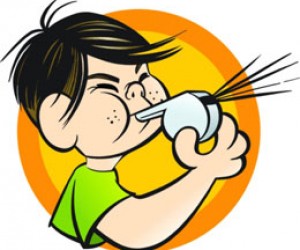Growing reports of sexual abuse, bullying and even drug use at local schools should be ringing alarm bells for parents, educators and school administration bodies says Dale Horne, Operations Director of Whistle Blowers, South Africa’s largest independent whistle blowing service provider.
If newspaper headlines aren’t enough, then he says that many studies highlight mounting dangers at educational institutions, suggesting an urgent need to introduce measures such as whistle blowing lines to protect children.
It’s at schools that learners are most likely to be assaulted or become victims of theft according to a 2006 report by the South African Human Rights Commission. In this study, more than a quarter (26%) of learner assaults occurred at school while more than half of thefts (52.4%) happened at school.
Bullying is most likely form of school violence. Horne cautioned that a recent video of a brutal school beating that circulated as well as other incidents of which he was aware indicated that many victims may even be in grave danger.
Researchers also paint an alarming picture. The latest statistics from the Progress in International Reading Literacy Study show that South Africa has the highest bullying rate in the world for Grade 4 pupils.
A 2012 Unisa survey revealed that 55% of school children had been bullied at school. Consumer Insights Company, Pondering Panda, recently released its study showing that two out of three South African learners are worried about being bullied at school. For 52%, bulling meant teasing and insults while, for 26%, it included pushing, hitting and beatings.
The survey, which polled 2064 pupils between 13 and 21 and 1015 family members, revealed that 68% of pupils were worried about being physically assaulted or threatened with a weapon at school. 54% said pupils brought guns and knives to school. The survey also highlighted the risk of cyber bullying with 16% of participants admitting to being threatened or insulted via cell phone, email or social media.
Alan Carey, Director of Justicia Investigations, who has vase experience in investigation into irregularities at school, pointed out that bullying is the most likely form of school violence. Carey mentioned that a recent video of a brutal school beating that circulated as well as other incidents of which he was aware supported the stats and showed there was reason for concern. Carey is regularly involved in investigations pertaining to theft of money and cell phones, as well as the distribution of drugs to scholars by drug syndicates. These investigations include private schools.
When releasing its report, Pondering Panda noted that problems had escalated to the point where outside intervention was needed.
“Whilst schools usually have policies and disciplinary procedures, more policies are required, such as ethics and whistle blowing policies. I can remember incidents of bullying at school and wouldn’t have dared to report a popular child. If I could have done that anonymously, I probably would have,” Horne says.
This is why school crimes go unreported and the true incidence of crime in South African schools is unknown. Neither children nor educators speak out because they will be identified and fear victimisation, intimidation and even violent reprisals – not to mention feelings of shame and guilt. Carey confirms that in all cases investigated, details of wrong doing were known by fellow learners, who chose to keep quiet.
“But just as schools are the most likely places for children to first encounter violence, they are also the ideal places for children to lean life skills and good values. When talking about creating a culture of honesty and integrity amongst our young people, school should be the place where we start. Just as businesses have ethics policies and whistle blowing facilities in place as part of good governance, so should schools,” Horne says.
In the Europe and America, school whistle blowing lines are commonplace, but these are used by staff.
Horne believes that there is no reason why learners shouldn’t use whistle blowing for reporting wrong doings.
“Once we get to high school, we are old enough to know the difference between right and wrong. Pupils need to know that they can speak up about what they know to be wrong – and if they feel they can’t use existing channels or confide in their parents, they need to know that there’s an alternative, independent and trustworthy avenue,” argues Horne.
He stresses that school whistle blowing lines need to be professionally managed by a company that has both credibility (Whistle Blowers isaccredited by the Ethics Institute of South Africa) and expertise. In addition to operating whistle blowing lines for businesses in South Africa and abroad, Whistle Blowers also operates lines for South African tertiary institutions.
Educating learners on why and how to use a whistle blowing line would be key to a successful program.
In addition to providing an effective reporting channel, Horne also believes that whistle blowing lines can act as deterrents. “Learners will be less prone to wrong doing simply because they will know that someone can phone and report what they are doing anonymously.”






